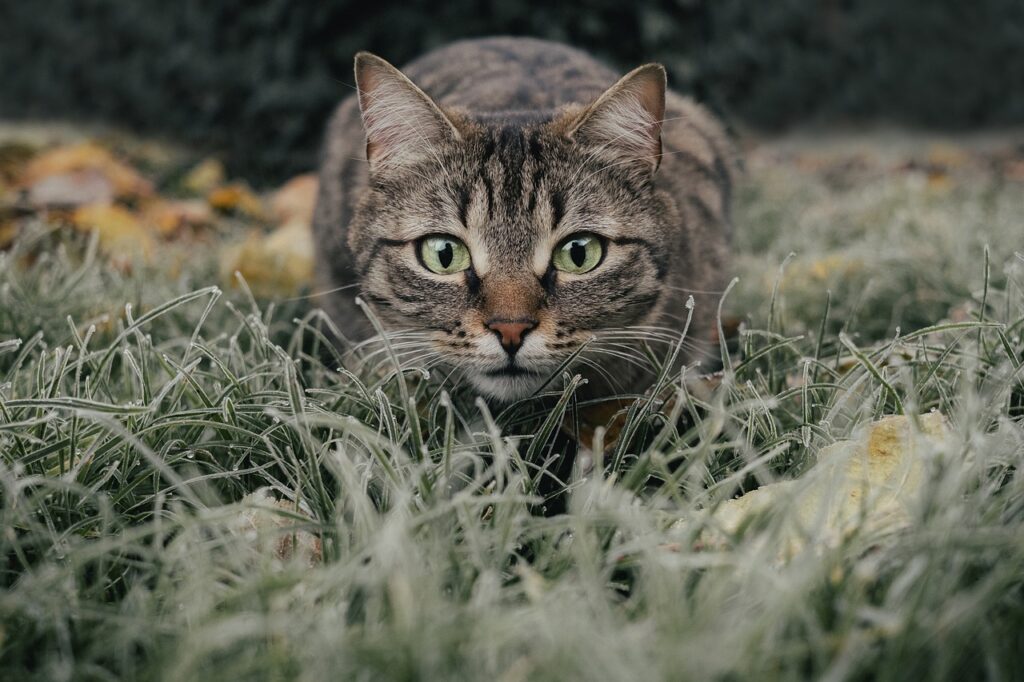Can Cats Eat Watermelon? – Yes, They can
Curious about sharing a slice of summer delight with your feline friend? The good news is, yes, cats can indeed enjoy watermelon. This juicy fruit is non-toxic to cats and can be a refreshing treat, especially during the warm months. While watermelon is mostly water (hence its name), it also provides a little fiber and nutrients such as vitamins A and C, which can contribute to your cat’s overall diet. However, moderation is key, as watermelon also contains sugar which isn’t necessary for a cat’s diet and could contribute to health issues if consumed in large amounts.
Can Kittens Eat Watermelon?
When it comes to kittens, the answer still remains yes, but with extra caution. Kittens have more sensitive digestive systems and are still growing, so it’s essential to introduce any new food, including watermelon, very gradually. Their primary diet should be a high-quality kitten food that provides all the necessary nutrients for their development. Ensure that any watermelon given to them is seedless and given in small, manageable amounts to avoid any choking hazards or digestive upset.
Things to consider when feeding watermelon to kittens?
Prior to offering watermelon to your kitten, there are a few things to bear in mind. Their portions should be significantly smaller than those for adult cats, and the watermelon should be seedless and free of any rind, as these can lead to gastrointestinal obstruction. Additionally, always observe your kitten after trying new food for any adverse reactions such as diarrhea or upset stomach. If any abnormal signs occur, discontinue feeding them watermelon and consult a veterinarian.
Nutritional Benefits of Watermelon for Cats – Why Watermelon is good for Cats
Hydration
Watermelon is over 90% water, making it an excellent source of hydration, which is especially beneficial on hot days or for cats that don’t drink enough water on their own.
Vitamin A
This vitamin is vital for various aspects of a cat’s health, including vision, immune function, and skin and coat health. Watermelon offers a small dosage of vitamin A, complementing a cat’s diet.
Vitamin C
While not an essential vitamin for cats (since they produce their own), vitamin C in watermelon can still serve as a natural antioxidant, potentially reducing inflammation and aging effects.
Fiber
A small amount of fiber found in watermelon can aid in digestion. However, cats require a diet that is high in protein, so fiber should only be a minute portion of their overall intake.
Potassium
Important for heart and kidney function, watermelon provides a bit of potassium, which supports overall bodily functions in your pet.
Potential Allergies: Can Cats Be Allergic to Watermelon?
While allergies to watermelon in cats are uncommon, it’s not impossible. As with introducing any new food, start with a tiny piece and monitor your cat for any unusual reactions.
Symptoms of Watermelon Allergies in Cats
- Gastrointestinal discomfort: Watch out for signs of diarrhea or vomiting which could indicate a reaction to watermelon.
- Skin irritation: Keep an eye out for any itching, scratching, or signs of hives as these could be symptoms of an allergic reaction.
- Respiratory issues: In rare cases, an allergic reaction could cause difficulty breathing or wheezing.
What to Do If Your Cat Shows Symptoms?
- Immediate removal of the food: Stop feeding your cat watermelon at the first sign of any allergy symptoms.
- Consult your veterinarian: They can provide professional advice and treatment if necessary.
- Monitor closely: Keep a close watch on your cat’s behavior and health following any suspected allergic reaction.
Recommended Amount: How Much Watermelon Can a Cat Consume?
A cat can enjoy a couple of small, seedless watermelon chunks as an occasional treat, not as a staple in their diet. It’s essential to ensure that these treats do not exceed more than 10% of your cat’s daily caloric intake to maintain a balanced diet.
Things to Consider When Feeding Watermelon to Cats
Always provide watermelon in moderation and ensure it’s seedless and rindless. The natural sugar content in watermelon, while safe, is not a necessary part of a cat’s diet, and overconsumption could lead to digestive issues or weight gain.
How to Feed Watermelon to Cats: A Quick Guide
Watermelon can be a delightful, hydrating treat for our furry companions when given correctly. It’s full of water and tastes delicious, but it should only make up a small part of their diet.
Simple Watermelon Puree
Blend seedless watermelon into a smooth puree and freeze it in an ice cube tray for a cool treat on a hot day.
Frozen Watermelon Chunks
Cut seedless watermelon into small, bite-sized chunks and place them in the freezer for a frosty snack.
Cat-Friendly Watermelon Sorbet
Mix watermelon puree with a little water and freeze to create a simple, cat-friendly sorbet.
Conclusion
While watermelon can be a safe and enjoyable treat for your cat, always keep in mind that it should be given in moderation, without seeds or rind, as part of a balanced diet. Always monitor your cat for any adverse reactions, especially when introducing any new food. Ultimately, while watermelon can offer a refreshing and hydrating experience, your cat’s health and safety should always come first.

